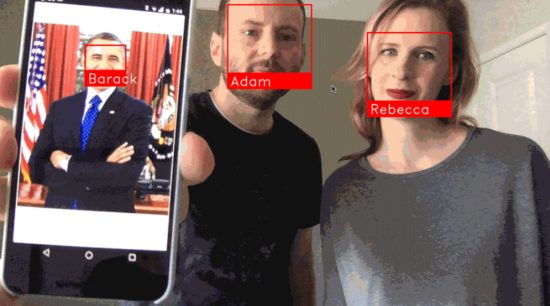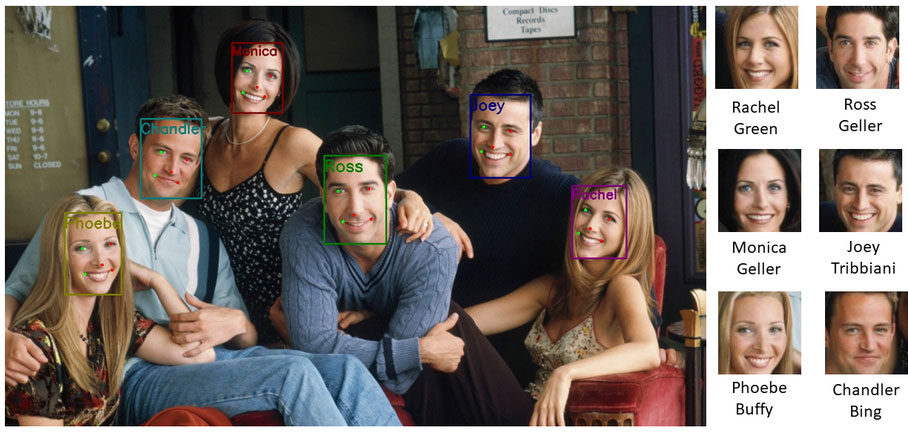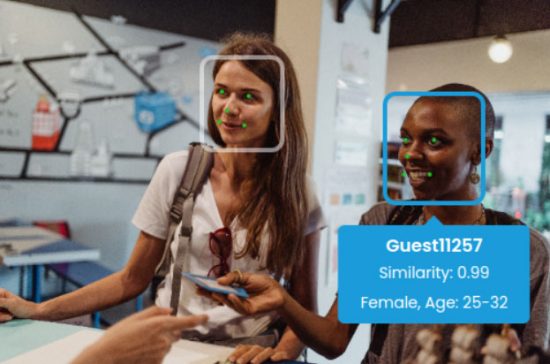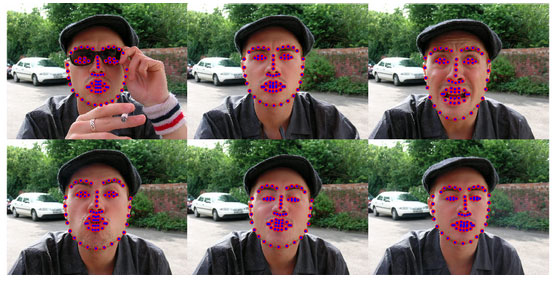10 Free Face Recognition Software

In this article, we will discuss the top 10 free face recognition software solutions available in 2023, covering their features, benefits, and potential use cases.
1. Ageitgey
Overview
Ageitgey is arguably the most popular free face recognition software on the market, boasting an impressive 48.5k stars on GitHub. This versatile platform can be used through its Python API or binary command line tool, making it accessible to a wide range of users.
Features and Benefits
Ageitgey’s platform comes with detailed installation instructions, making it easy for users to get started. Its popularity stems from its high level of accuracy using state-of-the-art face recognition built with deep learning.
Use Cases
Owing to its versatility, Ageitgey can be employed in various industries, including retail, healthcare, and security. Companies can use it to authenticate employees, prevent fraud, and enhance customer experiences.

2. InsightFace
Overview
InsightFace is a free face recognition software with around 15,700 stars on GitHub. It utilizes cutting-edge methods for face recognition, ensuring high accuracy in various applications.
Features and Benefits
InsightFace’s modern approach to face recognition ensures optimal performance and accuracy. Its open-source nature encourages continuous development and improvements by the community.
Use Cases
Industries that prioritize accuracy and performance, such as security, finance, and healthcare, can greatly benefit from InsightFace’s advanced face recognition capabilities.

3. DeepFace
Overview
DeepFace, another GitHub-published software from 2020, has received approximately 6,500 stars. It supports a variety of face recognition methods, including FaceNet and Insightface, offering users flexibility in their choice of algorithm.
Features and Benefits
DeepFace’s support for multiple algorithms allows users to select the most suitable method for their specific needs, potentially enhancing accuracy and performance. Its open-source nature encourages collaboration and ongoing improvements.
Use Cases
Industries such as law enforcement, healthcare, and retail can leverage DeepFace’s flexible algorithm support to tailor their face recognition systems for optimal results.

4. CompreFace
Overview
CompreFace is a relatively new face recognition software, published on GitHub in 2020. It has garnered about 3,000 stars and is one of the few self-hosted REST API solutions available, making it an appealing option for developers.
Features and Benefits
CompreFace can be used with just one docker-compose command, simplifying the installation process. In addition to recognizing faces in video streams, this software also includes a user interface for managing user roles and face collections.
Use Cases
CompreFace’s easy-to-use REST API and user interface make it a popular choice for industries requiring real-time facial recognition, such as surveillance and access control systems.

5. OpenFace
Overview
OpenFace is an open-source face recognition software that leverages deep learning techniques to provide high-quality results. It has gained popularity for its user-friendly interface and compatibility with multiple platforms.
Features and Benefits
OpenFace offers real-time face recognition, making it suitable for various applications. Its compatibility with Linux, Mac, and Windows platforms ensures that it can be used across diverse environments.
Use Cases
OpenFace’s real-time recognition and cross-platform compatibility make it ideal for industries such as retail, entertainment, and security, where rapid identification is crucial.

6. FaceNet
Overview
FaceNet, a Google-developed face recognition program, is an open-source Python library that implements the software. Although it lacks a REST API, its high accuracy makes it an attractive option for users.
Features and Benefits
FaceNet’s primary strength lies in its impressive accuracy, making it a reliable choice for critical applications. The open-source Python library allows developers to easily integrate it into their projects.
Use Cases
FaceNet’s accuracy and Python compatibility make it suitable for industries requiring precise face recognition, such as security, finance, and law enforcement.

7. Dlib
Overview
Dlib is a versatile C++ library that includes a wide range of machine learning algorithms, including face recognition. Its open-source nature and compatibility with various programming languages make it a popular choice among developers.
Features and Benefits
Dlib offers a range of machine learning algorithms, enabling users to tailor their face recognition solutions to specific needs. Its compatibility with Python, Java, and other languages ensures that it can be integrated into diverse projects.
Use Cases
Dlib’s flexibility and compatibility make it suitable for industries requiring customized face recognition solutions, such as healthcare, security, and marketing.
8. Azure Face
Overview
Azure Face, a part of Microsoft’s Cognitive Services, is a cloud-based face recognition API that offers a wide range of features, including face detection, verification, and identification.
Features and Benefits
Azure Face’s cloud-based nature ensures scalability and accessibility, allowing users to easily integrate it into their projects. It also offers advanced features such as facial landmarks and emotion recognition.
Use Cases
Industries such as retail, advertising, and entertainment can leverage Azure Face’s advanced features to enhance customer experiences and personalize marketing strategies.
9. AWS Rekognition
Overview
AWS Rekognition, a product of Amazon Web Services, is a cloud-based face recognition service that offers advanced features such as facial analysis and object detection.
Features and Benefits
AWS Rekognition’s cloud-based infrastructure allows for easy integration and scalability. Its advanced features enable users to gain deeper insights into their target audience and improve user experiences.
Use Cases
E-commerce, advertising, and entertainment industries can benefit from AWS Rekognition’s advanced capabilities to deliver personalized content and enhance customer engagement.
10. Google Cloud Vision
Overview
Google Cloud Vision, a part of Google’s Cloud Platform, is an AI-powered image recognition API that includes face detection and facial attribute analysis among its features.
Features and Benefits
Google Cloud Vision’s AI-driven approach ensures high accuracy and performance in various applications. Its wide range of features, including facial attribute analysis, enables users to gain deeper insights into their data.
Conclusion
As facial recognition technology continues to evolve, these top 10 free face recognition software solutions offer a diverse range of features and benefits to meet the needs of various industries. By carefully considering the specific requirements of each application, organizations can select the most suitable software to enhance security, convenience, and user experiences.

Related Artificial Intelligence
The Ultimate Data Science vs Machine Learning Guide
Top AI Data Analytics Tools You Can’t Miss in 2024
From Sci-Fi to Reality: Exploring the Evolution of Artificial Intelligence
The Ethics of AI: Balancing Advancements with Responsibility
AI and the Job Market: Will Robots Take Over Our Jobs?
How To Become An Artificial Intelligence Engineer
30 Careers That Surprisingly Use AI & Machine Learning
100 Applications of AI and Machine Learning